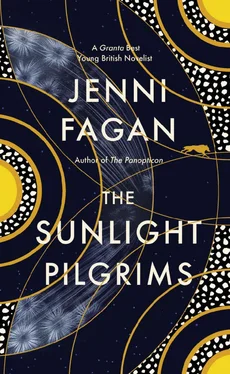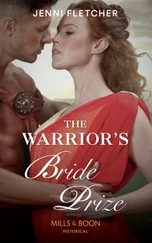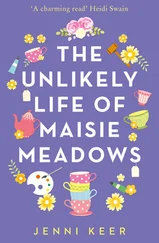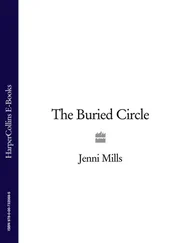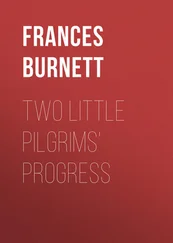What if he did, though?
What if he knocked three times?
Never answer the door if someone knocks three times — Vivienne used to say that. She said demons always knock three times, but they can only gain access if you invite them in. So if someone knocks on your door three times and you shout Come in — well, then you’re just asking for it and if it is a demon then you really are fucked. What you have to do is go to the door and look through the spy-hole and see what is standing on your doorstep and (of course) if it is a demon, then you tiptoe back down your hallway and put the lights out and hide behind the sofa and hope they go-the-fuck away.
His grandmother’s journey is the filament Babylon grew upon. Gunn MacRae arrived in London as a pregnant runaway from the islands furthest north. She had five pounds in her pocket and she didn’t know a soul. One night at the White Hart in Soho she joined an all-night poker session and proceeded to drink five grown men under the table. She was raised on the kind of home-brew that blinds by the bottle, so London gin never fazed her. She played the last man standing until his heart gave out. All the money on the table and the keys to Babylon just there in his fist.
Dylan’s phone buzzes. He walks through to the bedroom but it isn’t there, then back through the hall; he retraces his steps and opens the bathroom cabinet to find it buzzing next to his toothbrush: Premises at 345a Fat Boy Lane are secured & cannot be re-entered. A. N. Brogue.
Dylan puts his phone in his pocket. He wants to punch someone repeatedly in the face. He breathes out slowly, tries not to be so angry, tries really hard to be rational about it, not get upset like this, but it is all too fast. They were all sitting in the attic drinking tea, and chatting, and watching telly, just six months ago! Him, Gunn, Vivienne. He feels the faintest lurch, the world spinning on its axis and him tipping somehow with it.
WHEN HE slows down his face gets numb, it’s disconcerting. He needs to walk faster. He is unsure if he can even feel his toes any more. Dylan turns onto the car park and crosses around the back of the garages. He’ll need to insulate the caravan or, like the kid says, he’ll just die in this. He’ll need stuff. Thermals. A better fire. He really needs clothes. The landscape is layered in different shades of grey, touches of green, brown, white — all the way to the horizon. The mountains are bigger than anything he has seen before. Everywhere there is rock, stone, vastness. Dylan pauses to catch his breath. He is about to live in one of the coldest places on earth this winter. Of all the places he could have come to mourn! His boots crunch across frosty ground. His big hands flex in fingerless gloves and keeping his focus on the nearest mountain, that is the thing. Grief keeps drawing him back, though. Like something he catches out of the side of his eye. Walking down a hospital corridor. The nurse lays down her chart. She looks up and folds her hands quite carefully. Walking back out into the world after. People. Noise. Newspaper-sellers. Buses. Rain. Traffic. London. Sticking the key in the door at Babylon and just standing there in the doorway for how long?
He squeezes through a tiny path and as he comes out onto the farm road a twig skelps him in the face, a touch of blood, red on his finger and stark against a bleached-out sky — a harbinger of snow up there, even he can tell that. A sign on a fence says Eighre : and there is a picture of a little beach; the arrow points along a pathway and that walk is longer than he can go right now. The trees smell green and woody, the furrowed soil frozen but still with that deep earthy clarity, all undercut by brine from the nearby sea. Across the fields, soil in neat furrows and sparkling with frost for miles. There is an old crooked tree, wide on the base with bald limbs which have faded to look like bone.
The witches’ tree.
It soothes him.
Flat mushrooms grow around the base, all soft and wide and potentially fatal. Dylan crosses a wooden stile. Along the side of the field his boots slip on frozen bits of ground and he makes his way up a rocky incline. Height up here. Light so bright he can almost feel his pupils dilate, even though these skies are muted.
He should go back.
While he is out here he seems to be coming back to himself somehow, though.
Also, he can’t get pissed while climbing something this big.
That magician’s trick.
The rabbit disappeared.
A boy at the front of the audience stares into the hat. Where has it gone? It is elsewhere or not at all. That’s the only two options, kid. Elsewhere — not at all: what’s your bet? Dylan swallows down hard. He reaches the top corner of the field and he is panting. His throat burns. Below him the farmland brightens from dark brown to orange. A tractor lumbers out of a barn. The tops of caravans in the park are visible now. In the distance there are long trails of light where the motorway must be and he climbs faster, turning regularly to see the world unfold like a map below him. A light smoke drifts further up the mountain from a wee traditional croft house and the air is so cold it stings his nostrils. The sun slips behind a cloud, but a few seconds later the sky brightens fractionally and even that one faint tweak of light repaints shadows and valleys on the mountains.
Dylan steadies himself, puts his hand out on a pine tree and the bark is rough to touch and a tiny spider runs down the trunk, red and quick — right across his fingers. He walks into the forest. Everything quietens. The wind cuts out. The motorway no longer hums in the distance. His breathing slows. Sun spirals down through treetops showing up sediments of silver and amber dust. A frozen pond. Curls of ice make a frost flower on a fallen bough. Each iced petal is perfectly curled and see-through. Winter has been hand-carving them overnight. Placing them here. Dylan takes a photograph on his phone, wishes for a better zoom. He had a look at the temperature on the old barometer before he left and it was minus eight. Up the slope, pine trees taper toward the light; it endlessly changes their shape and texture — sunlight illuminates one branch for a second, then dims a whole section of forest the next.
As the trees grow thicker the light dims. It is soothing. It reminds him of Babylon.
Setting up the projector.
A screen counting back, 10, 9, 8, 7, 6, 5, 4, 3, 2, 1 and that flicker.
Drinking tea.
It is so naturally dark in here that he could set up a projector right in this forest. In the summer he could tie up sheets in the clearing and send out invites to the locals to come and see movies here at night. If this winter ends. He could think about it. He wouldn’t charge for admission, not at first. He could supply popcorn and gin, though, make enough doing that once a week to keep himself going. It’s a thought. It would be great to see films out here at night, perhaps with some fires going in autumn, hot wine, roasted chestnuts, why not? There is something to love in this. Some people love people, some people love buildings, and he did — he burrowed in his projection booth — but this! Buildings and people — the relationship between them — childhood homes, holiday cottages, a shed in a garden, a derelict car. They showed a documentary last year about a woman who married a bridge.
— It’s a long commute to see my new husband, she said.
She lived in Cologne and the bridge was in Prague.
— The heart wants what it wants, she said.
In the same documentary there was a man who wrote love letters to a cargo container and in the film he wept and seemed so genuinely grief-stricken that Dylan realised he had never loved anyone the way that man loved his cargo container, and he couldn’t work out what was the most tragic part of that.
Читать дальше
